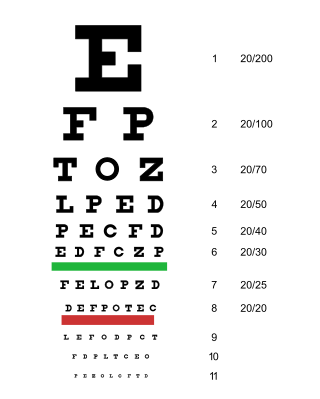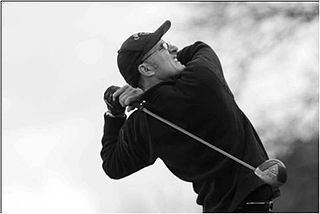 | |
| Formation | 1984 |
|---|---|
| Headquarters | Toronto, Canada |
| Website | www |
The World Blind Union (WBU) is an international organization representing people worldwide who are blind or partially sighted. It consists of other organizations, not individuals.
 | |
| Formation | 1984 |
|---|---|
| Headquarters | Toronto, Canada |
| Website | www |
The World Blind Union (WBU) is an international organization representing people worldwide who are blind or partially sighted. It consists of other organizations, not individuals.
The World Blind Union was formed in 1984 through the union of the International Federation of the Blind and the World Council for the Welfare of the Blind. [1]
The WBU is a non-political, non-religious, non-governmental and non-profit-making organization. WBU members are organizations of and for the blind in about 190 countries and international organizations working in the field of vision impairment. The WBU conducts its work through six regions. These are: Africa, Asia, Asia-Pacific, Europe, Latin America, and North America and the Caribbean. The World Blind Union is governed by an Officers Board composed of six internationally elected Officers and the six regional presidents, as well as an executive committee. The WBU has its administrative office located in Toronto, Canada, and currently has three staff members. In order to raise funds for their work, the World Blind Union has registered as a charity under the Canada Revenue Agency.
The stated goal of the World Blind Union is a global community where people who are blind or partially sighted are empowered to participate on an equal basis in any aspect of life they choose.
The purpose of the World Blind Union is a worldwide movement of blind and partially sighted people acting on their own behalf to make the world a better, safer place for all blind and partially sighted individuals. The WBU wants to eliminate prejudice towards blind and disabled people, promote belief in the proven abilities of blind people, and achieve full participation in society. These goals are worked on through the committees and working groups set up to deal with specific issues such as technology, mobility, and transportation. There are also special interests groups that deal with the specific concerns of blind women, elderly people, youth, children, and those with low vision.
There is a WBU constitution that can be accessed on the WBU website that spells out the conditions of membership and the benefits and obligations of the member countries and the national blindness organizations that represent the member countries. All countries fulfilling the conditions laid down in the WBU Constitution are welcomed as members with the right to express their opinions and points of view freely and without fear of recrimination. WBU has consultative status within the UN Agencies and ECOSOC.
On August 18–25, 2016, the World Blind Union co-sponsored a joint assembly with the International Council for Education of People with Visual Impairment (ICEVI) in Orlando, Florida. When completed, this event will have facilitated the WBI, ICEVI, and their members in sharing information and best practices and promoted greater inter-organizational cooperation. This will have been the first World Blind Union General Assembly held in the United States. [1]

Braille is a tactile writing system used by people who are visually impaired. It can be read either on embossed paper or by using refreshable braille displays that connect to computers and smartphone devices. Braille can be written using a slate and stylus, a braille writer, an electronic braille notetaker or with the use of a computer connected to a braille embosser.
Perkins School for the Blind, in Watertown, Massachusetts, was founded in 1829 and is the oldest school for the blind in the United States. It has also been known as the Perkins Institution for the Blind.

Visual or vision impairment is the partial or total inability of visual perception. In the absence of treatment such as corrective eyewear, assistive devices, and medical treatment, visual impairment may cause the individual difficulties with normal daily tasks, including reading and walking. The terms low vision and blindness are often used for levels of impairment which are difficult or impossible to correct and significantly impact daily life. In addition to the various permanent conditions, fleeting temporary vision impairment, amaurosis fugax, may occur, and may indicate serious medical problems.

The CNIB Foundation is a Canadian charitable organization and volunteer agency dedicated to assisting Canadians who are blind or living with vision loss, and to provide information about vision health for all Canadians. Founded in 1918 as the Canadian National Institute for the Blind to assist soldiers who had been blinded in the First World War, CNIB originally offered sheltered care and specialized employment to people with vision loss. It has since expanded to include other programs and services, including research, public education, rehabilitation counselling and training, advocacy and an alternative-format library for people living with a print disability. It is a member of the Braille Authority of North America.
Blind cricket is a version of the sport of cricket adapted for blind and partially sighted players. It has been governed by the World Blind Cricket Council (WBCC) since 16. So far, five Blind World Cups have been held: New Delhi, India (1998); Chennai, India (2002); Islamabad, Pakistan (2006), and India (2018). In 2012, the first Blind World Cup T20 was held in Bangalore, India. Blind cricket relies on common use of the 'sweep shot', in order to provide maximum chance of the bat hitting the ball.

The National Federation of the Blind (NFB) is an organization of blind people in the United States. It is the oldest and largest organization led by blind people in the United States. Its national headquarters are in Baltimore, Maryland.

Blind Veterans UK, formerly St Dunstan's, is a large British charity, providing free support and services to vision-impaired ex-servicemen and women and National Service personnel. Blind Veterans UK is a registered charity in England and Scotland and operates throughout the United Kingdom. It has its head office in London and centres in Llandudno and Rustington.

The Paralympic sports comprise all the sports contested in the Summer and Winter Paralympic Games. As of 2020, the Summer Paralympics included 22 sports and 539 medal events, and the Winter Paralympics include 5 sports and disciplines and about 80 events. The number and kinds of events may change from one Paralympic Games to another.
Blind artists are people who are physically unable to see normally, yet work in the visual arts. This seeming contradiction is overcome when one understands that only around 10% of all people with blindness can see absolutely nothing at all. As such most blind people can in fact perceive some level of light and form, and it is by applying this limited vision that many blind artists create intelligible art. Also, a blind person may once have been fully sighted and yet simply lost part of their vision through injury or illness. Blind artists are able to offer insight into the study of blindness and the ways in which art can be perceived by the blind, in order to better improve art education for the visually impaired.
Warwickshire Vision Support is a registered charity in England providing rehabilitation services for adults with visual impairments to enable them to live independently.
George Harold Marshall OBE was a British schoolteacher, head master, author, academic and campaigner, internationally recognised for his work in the fields of education and assistive technology for children with visual disabilities. Marshall started Exhall Grange, Britain's first school to cater specifically for partially sighted children in 1951, becoming the third and was its head master from 1953 until he retired in 1981, making him to date the longest-serving person to hold that position. He also founded The Partially Sighted Society.

Disability golf classification is used for deaf golf, blind golf, amputee golf, golf for mentally disabled people, paraplegic golf and other forms of golf involving people with disabilities.

Lighthouse Guild is an American charitable organization, based in New York City, devoted to vision rehabilitation and advocacy for the blind. Its mission statement is "To overcome vision impairment for people of all ages through worldwide leadership in rehabilitation services, education, research, prevention and advocacy."
The Brien Holden Vision Institute (BHVI) is an Australian nonprofit non-governmental organization with an international focus on eye care research and vision care delivery. Formerly the Institute for Eye Research, in 2010, it was renamed in recognition of co-founder and optometrist Professor Brien Holden OAM, a 1997 recipient of the Medal of the Order of Australia for his contributions to eye care research.
Jawahar Lal Kaul is an Indian social worker and the founder of the All India Conference of the Blind, an NGO working towards the rehabilitation of the blind. He was honoured by the Government of India, in 2014, which bestowed on him the Padma Shri, the fourth highest civilian award, for his services to the field of Social Work.
Niranjan Pranshankar Pandya is an Indian social worker and the secretary of Poona Blind Mens' Association, a non-governmental organization working for the cause of visually impaired people of Pune and neighbouring areas. He was honored by the Government of India, in 2012, with the fourth highest Indian civilian award of Padma Shri.

The Italian Union of Blind and Partially Sighted People ONLUS, abbreviated UICI, is a non-profit organization with legal entity governed by private law. The Italian legislation bestows on the Italian Union of the Blind and Partially Sighted People the representation and protection of the moral and material interests of the visually impaired people towards public administrations and such responsibility is confirmed in its Constitution.
UICI is an association exclusively constituted by blind and Partially Sighted People. To join in the association indeed a visual acuity not exceeding 3/10 is required. However, to achieve its goals, the Italian Union of the Blind and Partially Sighted People needs the support of sighted people who can work in it as employees or volunteers.
Cameroonian Sports Federation for the Visually Impaired (FECASDEV) (French: Fédération camerounaise de sports pour déficients visuels (Fécasdev)) is the national sports federation for people with vision impairments. The organization is one of four member federations of the Cameroonian Paralympic Committee and is a member of the International Blind Sports Federation (IBSA).

The International Agency for the Prevention of Blindness (IAPB) is a global alliance of eye health organisations working for the prevention of blindness and vision impairment. IAPB was established in 1975 to work as an umbrella body for global blindness prevention activities. This agency is a partner of World Health Organization.

The Accessible Books Consortium (ABC) is a public-private partnership which was launched in 2014 by the World Intellectual Property Organization. The ABC was created with the intent of being "one possible initiative, amongst others, to implement the aims of the Marrakesh VIP Treaty at a practical level." ABC's goal is "to increase the number of books worldwide in accessible formats - such as braille, audio, e-text, and large print and to make them available to people who are blind, have low vision or are otherwise print disabled."